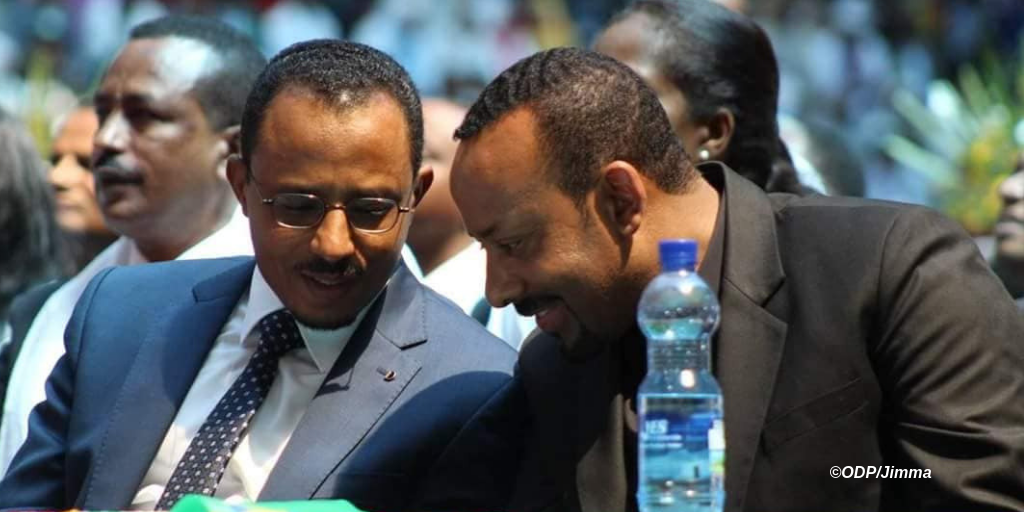ADDIS ABABA (HAN) September 25. 2020. Public Diplomacy and Regional Stability Initiatives News. Monitoring Regional Issues. By Solomon Dibaba. Many Ethiopians here and in the diaspora harbor diverse views on the current situation in the country. Some apparently hold on pessimistic views that the country is at the threshold of a gloom and doom while quite a lot of citizens anchor their hopes on new socioeconomic development reforms that are underway in the midst of COVID-19 pandemic that has surfaced up in the country over the last six months. Some Ethiopians panicking over the recent tragic developments in the country doubt if there is a stable and responsible government in the country.
Indifference of any person or party to the ongoing developments in Ethiopia is a denial of something that objectively exists at the doorstep of every citizen.
Yes, everything invariably depends upon how one perceives the realities in Ethiopia. Indeed, the country is struggling with the socio-economic advent of the COVID-19 virus that is tearing down some specific economic areas like the services including tourism and hotel industries and the entertainment sectors as well as creative arts. However, all is not bleak for this land.
Even if the effects of the pandemic are loud and clear, reports coming out from various economic sectors indicate that some marked improvements have been demonstrated in foreign trade, agriculture, aviation and the health sector.
Recent media reports indicate that the Prime Minister has conducted a series of meetings with the representatives of political parties in the country with a view of taking up important discussions on how the parties can work together on issues of national significance while maintaining their differences that can possibly be narrowed down over time. So far no significant results are insight but the very fact that these parties are now cognizant of the importance of creating a practical consensus on working for the national development of their country is a step in the right direction.
In the recent history of this country, various political organizations have tried to work together to form the former Workers Party of Ethiopia under the leadership of the Derg. Earlier after the fall of Derg, EPRDF was formed as a front for four ethnic-based political organizations which collapsed after 27 years in power to be replaced by Prosperity Party.
The ramifications in the nature of the political parties in Ethiopia in that most of them are ethnic-based focusing on the specific needs and priorities of the nations and nationalities they claim to represent glosses over issues at federal and national levels. On the other hand, periodic splits among a number of political parties have continued to hamper stable political credibility of these parties on issues of national significance.
On the other hand, recent merger of various political parties with similar programs is a positive trend towards the normalization of relations between various political parties operating at federal and regional levels. This is a country with over 100 political parties indicating the degree of political and ideological complications setting a challenge for full cooperation at the national level.
Even then, there are outstanding issues that seem to attract a common denomination among the political parties in Ethiopia. For instance a positive stance on cooperation on the completion of GERD, environmental protection, the development of other natural resources of the country, nationwide efforts to curb corruption and land grabbing, inputs into the improvements in quality education, preservation of national heritages and a host of other areas of cooperation.
The strength of each political party needs to be measured not on how much it has worked towards the improvement of the livelihood of the peoples it claims to represent but on its practical contribution to the development of the entire country.
On the other hand, inner-party life of many political parties may need to be assessed by the membership in order to pave the way for organizational rectification and self-review. Stronger party leadership is a guarantee for a unified party approach towards national development in Ethiopia. Ethiopia’s bright future depends not on the efforts to be made by the ruling party but on the joint actions spearheaded by frontline parties that depict the political image of the country.
Opposition parties’ role in the political development in Ethiopia is not expected to be based on political nihilism but they are responsible co-authors and owners of the development programs of this country. Political opposition parties are important as sources of input for corrective, participatory and constructive measures that are important for the development of democracy and democratic politics in Ethiopia.
Constructive dialogue to be conducted among the Council of political parties and the public at all levels is highly critical in helping to determine the politics future of this country. Every political party including the party on power is constitutionally obliged to work towards the wholesome development of this country. There should be no room for sitting on the fence.

Leave a Reply